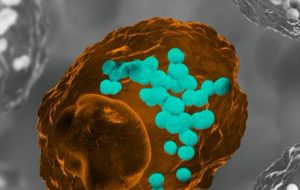Following a three-year collaboration that kicked off when Pfizer embraced its biological models for new immune-mediated disease and cancer immunotherapy drug development, AI-powered drug discovery company CytoReason and its long-term biopharma powerhouse partner are inking a new, wide-ranging deal. Israel-based CytoReason is on the receiving end of a $20 million investment and could earn as much as $90 million in funding over the next half decade via options to license its disease model as well as AI platform.
“Our friends at Pfizer realized that, to reach patients with cutting-edge technology, they must find a way to integrate clinical data with molecular data,” said David Harel, Chief Executive Officer of CytoReason. “That’s exactly what our computational disease models are designed to do. They enable pharma and biotech companies to conduct synthetic trials based on masses of clinical and molecular data, before spending hundreds of millions of dollars on human trials.”
CytoReason’s 80-strong team of data engineers, biologists, and bioinformaticians map out computation models of human diseases by leveraging vast human data and a plethora of AI tools that can determine new disease targets and biomarkers. The company’s AI can also predict which patients might have ideal responses to novel treatments.
CytoReason’s Pfizer team-up adds to its solid track record for top-tier pharma partnerships, which also include Roche, Sanofi, Merck KGaA, and Ferring Pharma, and the Parker Institute for Cancer Immunotherapy (PICI) at Memorial Sloan Kettering Cancer Center.























